As the temperature cools and crowds slowly begin to leave our nation's capital, one thing is certain (OK, maybe two things are certain): summer is nearly over, and the SSEC's 2013 International K-12 Science Education Institute for Leadership Development and Strategic Planning has come to a close.
Search Results
2013 International K-12 Science Education Institute for Leadership Development and Strategic Planning: What an Adventure!
Examining Students' Thoughts: An Important Part of Teaching Science
In my freshman-year biology class in college, my professor asked the 120 students in the room to think about how a tree acquires mass as it grows. I was puzzled, having never been asked this question in previous biology classes, and other students felt the same way and didn't know the answer. After allowing us to deliberate for a little while, the professor proceeded to show us a video of Harvard and MIT graduates coming up with the wrong answer to this fundamental question about photosynthesis.
Techniques for Encouraging a Culture of Argumentation in Your Classroom
During our annual National Science Education Leadership Development Forum in Alexandria, VA, Professor Lisa Kenyon talked about creating a culture of argumentation in a science classroom. We talked about why you might want a culture of argumentation in your classroom in our previous post. This week, we will discuss what teachers can do to create this culture in their classrooms.
Getting "Wise" with Pegmatites
"In order to understand Earth, you have to understand rocks and minerals." Dr. Michael Wise took science teachers from around the nation behind the scenes to learn about some unusual rocks and minerals. His specialty is with pegmatite a mineral found in a variety of critical electronics (such as video game consoles).
A Culture of Argumentation? Something to Strive for in Science Class
A culture of argumentation... at first it doesn't sound like the sort of thing you would want to encourage in the classroom. But especially in science class, it is exactly what our students need. "Argumentation" is the backbone of how scientists talk to one another. Similar to building a court case, scientific arguments are a way to explain what you think, and why you think that way. Unfortunately, despite argumentation's critical role in science, it is seldom used in teaching the subject.
Why Invest in Stem Education
Why should we support education in science, technology, engineering and mathematics (STEM)? The answer is simple yet profound. We must all recognize that we live in an era of constant scientific discovery and technological change, which directly affects our lives and requires our input as citizens. And we must recognize that as our economy increasingly depends on these revolutionary new advances, many new jobs will be created in STEM fields.
Teacher Academies: Incandescent Light Bulbs, Tesla, and Fuel Cells, Oh My!
 With our second Science Academy for Teachers of the summer gone and behind us, we have moved ahead with the third and final Earth History Academy that took place in Washington DC this past week.
With our second Science Academy for Teachers of the summer gone and behind us, we have moved ahead with the third and final Earth History Academy that took place in Washington DC this past week.
Here are some highlights from this summer's Energy Academy:

Thank You, Student Volunteers!
Welcome to Houston! It's the middle of July, we're in our second-to-last week of training (there are six total), and our staff and trainers are not nearly as exhausted as we thought we would be at this point in the summer.
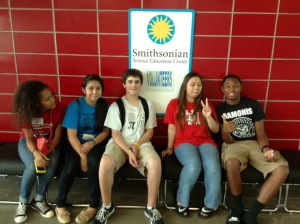
A group of volunteers gather for quick photo.
Evolution, Phylogenetic Trees, and Younger Audiences
Evolutionary relationships and phylogeny can be a confusing topic even for some college students, so how do K-12 science teachers navigate this sometimes frustrating topic and find the resources to help them share this important knowledge with their students?
I was talking with some of the teachers during the Biodiversity Academy week here in Washington D.C. about software programs or online resources that would be appropriate for middle school or elementary audiences. Here are a few online resources I found that may be helpful in those settings:
Mobile Apps for Citizen Science
Citizen science projects engage members of the public in scientific research. With the Next Generation Science Standards' emphasis on science and engineering practices, these projects provide an ideal way to involve students in the process of scientific investigation. An abundance of mobile apps makes participation in citizen science projects easier than ever and allows data entry in the field. Here is a selection of apps that we found particularly useful for engaging students.
Teacher Academies: One Down, Two To Go!
We had a busy week this week with the first Smithsonian Educational Academy for Teachers of the summer underway. This week's theme was Biodiversity, and twenty-four K-12 science teachers from all over the nation came to Washington DC to participate.
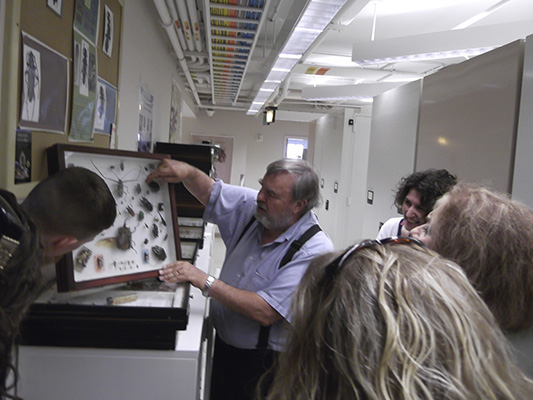
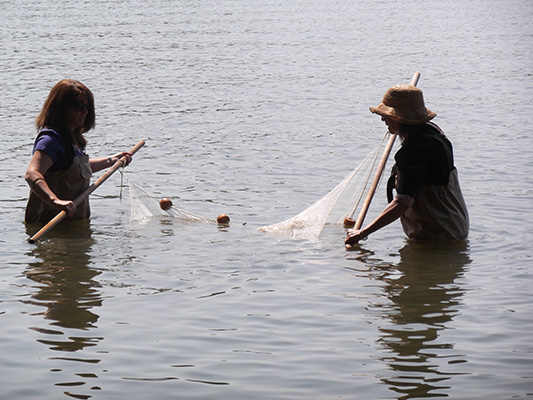
Energy Week at SSEATS
Hi, Energy Academicians!
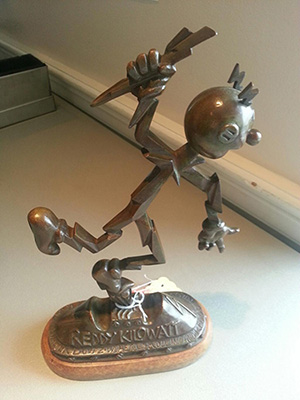
Welcome to our 2013 Energy SSEAT Blog. This site was created for you to network, share ideas, to keep touch after the Academy, and generally to provide a casual digital forum for us to talk energy!
Welcome to The Biodiversity Week!
Hi, Biodiversity Academicians!
Welcome to our 2013 Biodiversity SSEAT Blog. This site was created for you to network, share ideas, to keep touch after the Academy, and generally to provide a casual digital forum for us to talk biodiversity!
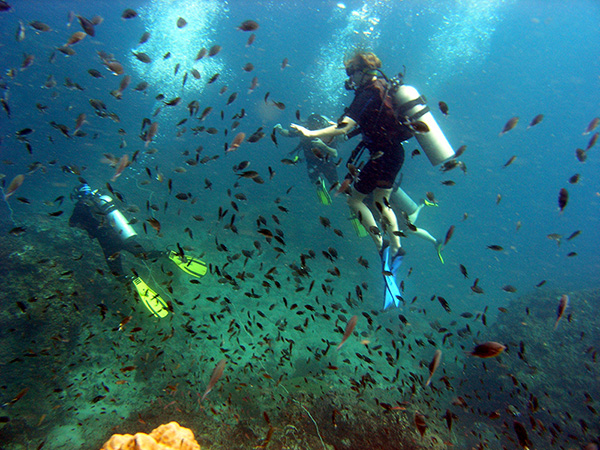
First off please introduce yourselves:
Our Summer is off to a Great Start Here at the SSEC!
We just finished our first week of LASER i3 Professional Development (PD) in Santa Fe, New Mexico! 86 science teachers, representing 17 schools and 12 districts joined us June 3-7 at Gonzales Community School for five intense days of PD.
Teachers spent the first half of the week diving deep into science content as adult learners. From first grade teachers exploring biological systems to sixth grade teachers revisiting physics formulas, participants were challenged as they became the student in inquiry-based discussions and activities.
How was Your School Year?
As many of you are done or winding down with the school year, we wanted to ask...how was it? We think ours was pretty good based on some of the feedback we got from students:QUOTE-I-learned-so-much-about
Happy summer, everyone! This is our favorite time of year because we get to meet and work with so many teachers!
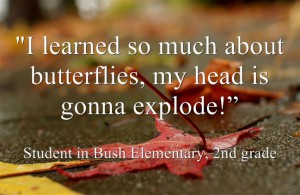
Stories of Challenge and Triumph: Using History of Science in Our Science Teachiner
Science can be intimidating even to those of us in the field, but particularly to students who find themselves struggling with STEM homework. The way we as educators talk about science can unintentionally contribute to students' self doubt about their potential in STEM. Too often, science is painted as the work of exceptional "geniuses". A superficial glance at history makes it seem as though scientific breakthroughs occur with ease and fanfare.
Learning About Science and Engineering From Tornadoes
The tragedy brought about by natural disasters will leave your students with a lot of questions. Even students not directly affected by a damaging storm may find images of a twister and its aftermath scary.

Watch Their Enthusiastic Minds at Work
When parents first approached Four Oaks Elementary School principal David Pearce about starting an after-school science club, the North Carolina parents estimated that 40 students would be interested. Shortly after Students learn about animal peltsannouncing the new science club, more than 160 students signed up. The anticipated small gathering of a few students quickly turned into nine separate groups: five K-2 Green Kids' Clubs, two 3-5 Green Kids' Clubs, and two Engineering Clubs.
Evaluation and Partnership
Our LASER i3 grant looks at the impact of the LASER program on the STEM learning of over 75,000 students in North Carolina, New Mexico, and Houston. How do you evaluate the impact of something so enormous? What evidence for success are we seeing so far? Check out the video recorded and edited by our own Program Assistant, Dana Bulba
Teaching Argumentation in Middle and High School Classrooms
Come one, come all to this year's National Science Education Leadership Development Forum! Formerly held during NSTA's National Conference, this year's Forum will take place right in the Smithsonian's backyard. This half-day symposium offers science educators the unique opportunity to hear and experience the research of two distinguished scholars on the topic of scientific argumentation.
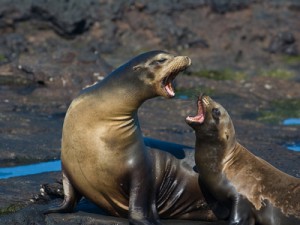
Who Can You Meet Behind The Scenes at Smithsonian?
This summer we will be conducting three professional development workshops together known as the Smithsonian Science Education Academies for Teachers. These professional development opportunities are special for a lot of reasons, one of which is the opportunity to work with passionate scientists, researchers, and curators. These men and women are not only subject specialists, they are enthusiastic communicators and love to connect with kindred science spirits!
Here are some of the folks that will be working with us:
We're Launching Some Exciting Stuff
There have been a lot of changes around here, starting with our name! In order to better reflect our history and mission, we are now the Smithsonian Science Education Center (formerly National Science Resources Center). Our name has changed but our commitment hasn't: we are dedicated to a research-based approach to transforming science education and we continue to produce high-quality, inquiry-based curriculum.

Participants Wow'd by WestEd
Imagine this... it is early morning, and teachers, curriculum coaches, district staff, trainers, and facilitators from all over the country are gathered in a single room. During the weeks of February 25th and March 4th, 53 regional representatives from New Mexico, North Carolina, and Houston, TX, joined by Smithsonian Science Education Center (SSEC) staff and contracted trainers, gathered in Oakland, California for an intense four-day, 30 hour training hosted by WestEd and the SSEC: the 2013 LASER i3 WestEd Facilitation Academies.
What Questions Do You Have About Your Seed?
Our publisher Carolina Biological has this wonderful video we would like to share of a teacher working on science with her 1st grade students. Notice the emphasis on student questions in this video...as the teacher says, the students are well on their way to being great scientist.
In addition to science, the students get a chance to use math and math vocabulary while perusing their own questions. Who wouldn't want to be a student in this wonderful classroom?
Managing Curiosity in Your Classroom
Has this ever happened to you? You're talking about a science topic with your class and they are captivated (Go You! You are such an awesome teacher!). They are asking tons of questions: Can animals see colors we can't? How do we know? Is the color blue that I see the same as the color blue that you see? How can we tell?
What is So Hard About Gravity?
Make a list with fellow science teachers about what might be difficult about a particular science topic.
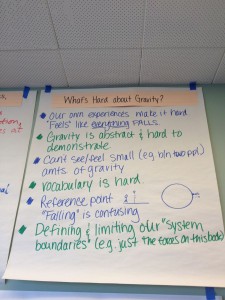
Time to work together with colleagues can be rare, but a conversation you might consider having with your colleagues is: what is it that makes science, or better yet, specific science topics, "hard".
We're Looking for Interns in NM, NC, and Houston This Summer
The NSRC's Investing in Innovation (i3) initiative supports and promotes high quality, inquiry-based science education programs and helps establish infrastructures to sustain those programs for decades to come. This initiative studies the effects of the NSRC's LASER Model in grades 1-8 in three regions: North Carolina, Northern New Mexico, and Houston Independent School District.
Washington, DC-based interns will be based at NSRC's DC offices and may be asked to travel to one or more regional sites to assist with summer workshops.
Come Join Us At Smithsonian This Summer!
We're excited to announce that together with other museums and units of the Smithsonian, we will once again be offering the Smithsonian Science Education Academies for Teachers (SSEATS). SSEATS were started in 2005 to bridge the gap between formal and informal science education by combining training in science content and pedagogy with behind the scenes experiences at a wide variety of Smithsonian units, Smithsonian Affiliate partners, inquiry-based STC/ STCMS curriculum and world-class science research facilities throughout the Washington DC area.
Come Intern With Us
Are you interested in science? Are you good at things? Do you like to work with nice, smart people? Is money useful for you in your pursuit of goods and services? Yes? Oh good, we're looking for you!
Focusing On The Questions
How do we prepare students for a world where the answers aren't always waiting for them in the back of the book?
In an age of standardized tests and even tests that prepare you for standardized tests, answers, especially that one, single, right one, seem to take on an inflated importance in our classrooms. Those right answers and those tests certainly have a place in our children's education. But where do questions go?
